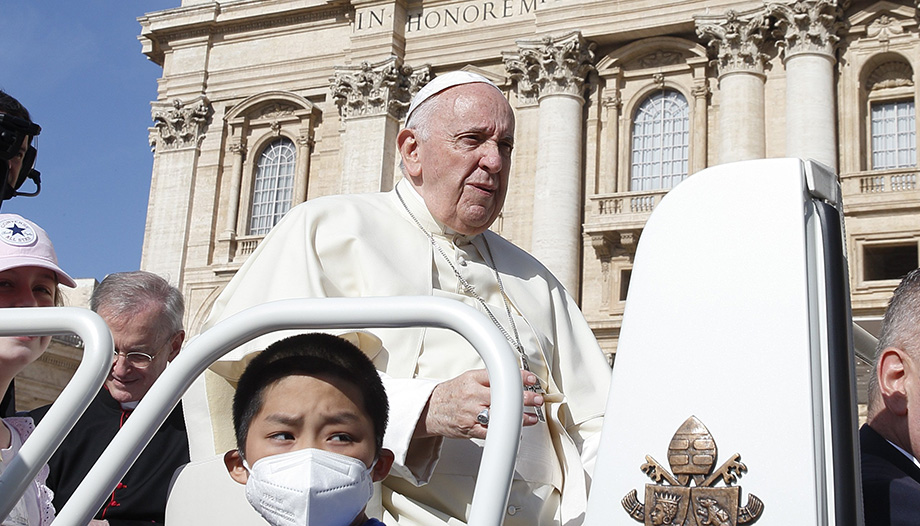No one is surprised by the growth of the throwaway culture among the older generations. It is therefore striking that the Pope entrusts the elderly with the task of being light and wisdom for others. One might think that the Pope's messages to the elderly would be one of complacency and victimhood. Despite the fact that society does not count on them, Francis invites them to come out of defeatism and the comfort zone.
He began his remarks by pointing out how "this brief book impresses and bewilders with its famous refrain: "All is vanity", all is "fog", "smoke", "emptiness". It is surprising to find these expressions, which question the meaning of existence, in Sacred Scripture. In reality, Qoheleth's continuous oscillation between meaning and meaninglessness is the ironic representation of a knowledge of life that stems from the passion for justice, of which God's judgment is the guarantor."
In a world in which the paradigm of economic growth seems to rule everything, the Pope asks: "Have our efforts changed the world? Is anyone perhaps capable of asserting the difference between what is just and what is unjust? It is a kind of negative intuition that can arise at every stage of life, but there is no doubt that old age makes an encounter with disenchantment almost inevitable.
And therefore the resistance of old age to the demoralizing effects of this disenchantment is decisive: if the elderly, who have already seen everything, keep intact their passion for justice, then there is hope for love, and also for faith. And for the contemporary world it has become crucial to pass through this crisis, a healthy crisis, because a culture that presumes to measure everything and manipulate everything ends up also producing a collective demoralization of meaning, of love, of the good. This demoralization takes away the desire to do".
The value of old age
As can be seen, Francis makes a hopeful reading of the present situation, which is not lacking in problems and tastelessness. He recognizes how despite "all our progress and well-being, we have truly become a 'society of fatigue'. We had to produce generalized well-being and we tolerated a scientifically selective health market. We had to set an insurmountable limit to peace, and we see a succession of increasingly ruthless wars against defenseless people. Science progresses, of course, and it is a good thing. But the wisdom of life is something else, and it seems to be stagnating.
True wisdom does not seem to have been widespread in any era, but now we are in the era of disinformation. "It is no coincidence that ours is the age of fake news, collective superstitions and pseudo-scientific truths. Old age can learn from the ironic wisdom of Qoheleth the art of bringing to light the deception hidden in the delirium of a truth of the mind devoid of affections for justice. Old people full of wisdom and humor do a lot of good to the young! They save them from the temptation of a sad and unwise knowledge of the world. And they bring them back to the promise of Jesus: "Blessed are those who hunger and thirst for righteousness, for they shall be satisfied" (Mt 5:6).








